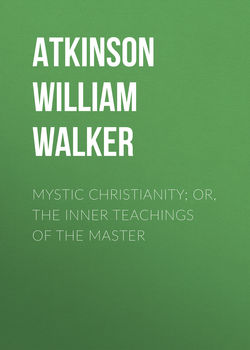Читать книгу Mystic Christianity; Or, The Inner Teachings of the Master - Atkinson William Walker, William Walker Atkinson - Страница 5
THE FIRST LESSON
THE COMING OF THE MASTER
THE MAGI, OR WISE MEN
ОглавлениеThe translators of the New Testament have translated the words naming these visitors from afar as "the Wise Men from the East," but in the original Greek, Matthew used the words "The Magi" as may be seen by reference to the original Greek versions, or the Revised Translation, which gives the Greek term in a foot-note. Any leading encyclopedia will corroborate this statement. The term "the Magi" was the exact statement of Matthew in the original Greek in which the Gospel was written, the term "the Wise Men" originating with the English translators. There is absolutely no dispute regarding this question among Biblical scholars, although the general public is not aware of the connection, nor do they identify the Wise Men with the Oriental Magians.
The word "Magi" comes to the English language direct from the Greek, which in turn acquired it by gradual steps from the Persian, Chaldean, Median, and Assyrian tongues. It means, literally, "wonder worker," and was applied to the members of the occult priestly orders of Persia, Media, and Chaldea, who were Mystic Adepts and Occult Masters. Ancient history is full of references to this body of men. They were the custodians of the world's occult knowledge for centuries, and the priceless treasures of the Inner Teachings held by the race to-day have come through the hands of these men—the Magi—who tended the sacred fires of Mysticism and kept The Flame burning. In thinking of their task, one is reminded of the words of Edward Carpenter, the poet, who sings: "Oh, let not the flame die out! Cherished age after age in its dark caverns, in its holy temples cherished. Fed by pure ministers of love—let not the flame die out."
The title of "Magi" was highly esteemed in those ancient days, but it fell into disrepute in the latter times owing to its growing use as an appellation of the practitioners of "Black Magic," or "evil wonder-workers" or sorcerers, of those days. But as a writer in the New International Encyclopedia (Vol. XII, page 674) has truly said:
"The term is employed in its true sense by Matthew (2:1) of the wise men who came from the East to Jerusalem to worship Christ. The significance of this event must be observed because the Messianic doctrine was an old and established one in Zoroastrianism."
The same article says of the Magi: "… they believed in a resurrection, a future life, and the advent of a savior."
To understand the nature of the Magi in connection with their occult "wonder working," we must turn to the dictionaries, where we will see that the word "Magic" is derived from the title "Magi;" the word "Magician" having been originally "Magian", which means "one of the Magi." Webster defines the word "Magic" as follows: "The hidden wisdom supposed to be possessed by the Magi; relating to the occult powers of nature; mastery of secret forces in nature", etc. So you may readily see that we are right in stating to you that these Wise Men—the Magi who came to worship the Christ-child, were in reality the representatives of the great Mystic Brotherhoods and Occult Orders of the Orient—Adepts, Masters, Hierophants! And thus do we find the Occult and Mystic "wonder workers"—the high-degree brethren of the Great Eastern Lodges of Mystic Occultism, appearing at the very beginning of the Story of Christianity, indicating their great interest in the mortal birth of the greater Master whose coming they had long waited—the Master of Masters! And all Occultists and Mystics find pleasure and just pride in the fact that the first recognition of the Divine Nature of this human child came from these Magi from the East—from the very Heart of the Mystic Inner Circles! To those so-called Christians to whom all that is connected with Mysticism and Occultism savors of the fiery sulphur and brimstone, we would call attention to this intimate early relation between The Musters and THE MASTER.
